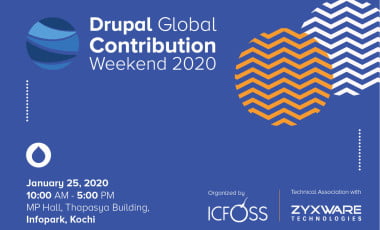Consultation meeting on Industry Academia Interaction at Rajiv Gandhi Institute of Technology, Kottayam
Recently, we had an opportunity to attend a consultative meeting hosted by Rajiv Gandhi Institute of Technology, Kottayam (RIT) on Academia Industry partnership. The meeting was in the context of the Technical Education Quality Improvement Programme (TEQIP) of Government of India in which RIT is a part. The purpose of the meeting was to discuss the possible areas of cooperation between RIT and the different companies present. Other participants in the meeting included MRF, Rubber Research Institute of India, Infosys Technologies, UST Global, Tata Consultancy Services and Bioway Packs. The discussion was opened up with the Principal setting the context with a presentation on Rajiv Gandhi Institute of Technology and the expectations of the college from the partnership between Academia and Industry.
This included the following:
- Establishing Industry-Institute Partnership to bridge the gap between campus and corporate
- Organizing workshops, conferences and symposiums with joint participation of the faculty and people from industries
- Arranging guest lectures, technical talks etc.
- Establishing MOU's between the Institute and industries for consultancy etc.
- Instituting scholarships to encourage healthy competition among students
- Providing internship opportunities to students
The companies later presented their views on what are the possible areas of collaboration with the college. The three areas that were discussed primarily included internships for students at the different companies, partnership for 'soft skills' training for students and exchanging experience and knowledge on training and curriculum between academia and industry.
Zyxware Technologies, represented by Thomas P. Thomas, Chief Executive Officer and Anoop John, Chief Technology Office, presented their views on industry academia partnership and suggested ways in which Zyxware Technologies could partner with RIT.
The industry academia collaboration presented a good opportunity for mutual gains. The exchange of ideas could prove beneficial for research and teaching with the inputs from industry on technological advances that occur at a fast pace and practical training. Industry can benefit in areas like new product development, research based impact assessments and training for working professionals. These are only some of the more obvious gains. There are other substantive gains that can occur from an educational perspective which includes a broader perspective on the profession that students can achieve through exposure to industry.
The broad framework for partnership should be developed keeping in mind the similarities and differences in objectives of industry and academia. This would enable to set appropriate mutual expectations for cooperative action and minimise conflicts arising out of mismatched expectations.
A precondition for the partnerships to emerge is the existence of forum for engagement between companies and academia. We requested RIT to set up a portal where RIT could facilitate interaction between members of RIT and staff of interested companies, provide information on various research and consultancy activities that the college undertakes and programmes under which collaboration can happen. Zyxware Technologies outlined the areas in which Zyxware Technologies had engaged with the academia. This included development of RithuOS for students of technology, developer camps and training programmes in engineering colleges and polytechnics for students and faculty and support for Free Software Users Groups in colleges and internships for students. We offered to work with RIT around Free Software. This includes Free Software applications for engineering education, training for students in computer programming. It is hoped that this will be a mutually beneficial opportunity for RIT and Zyxware Technologies.



